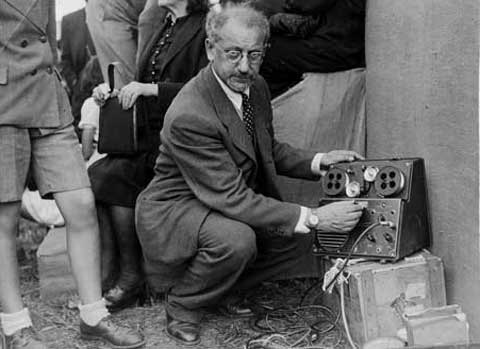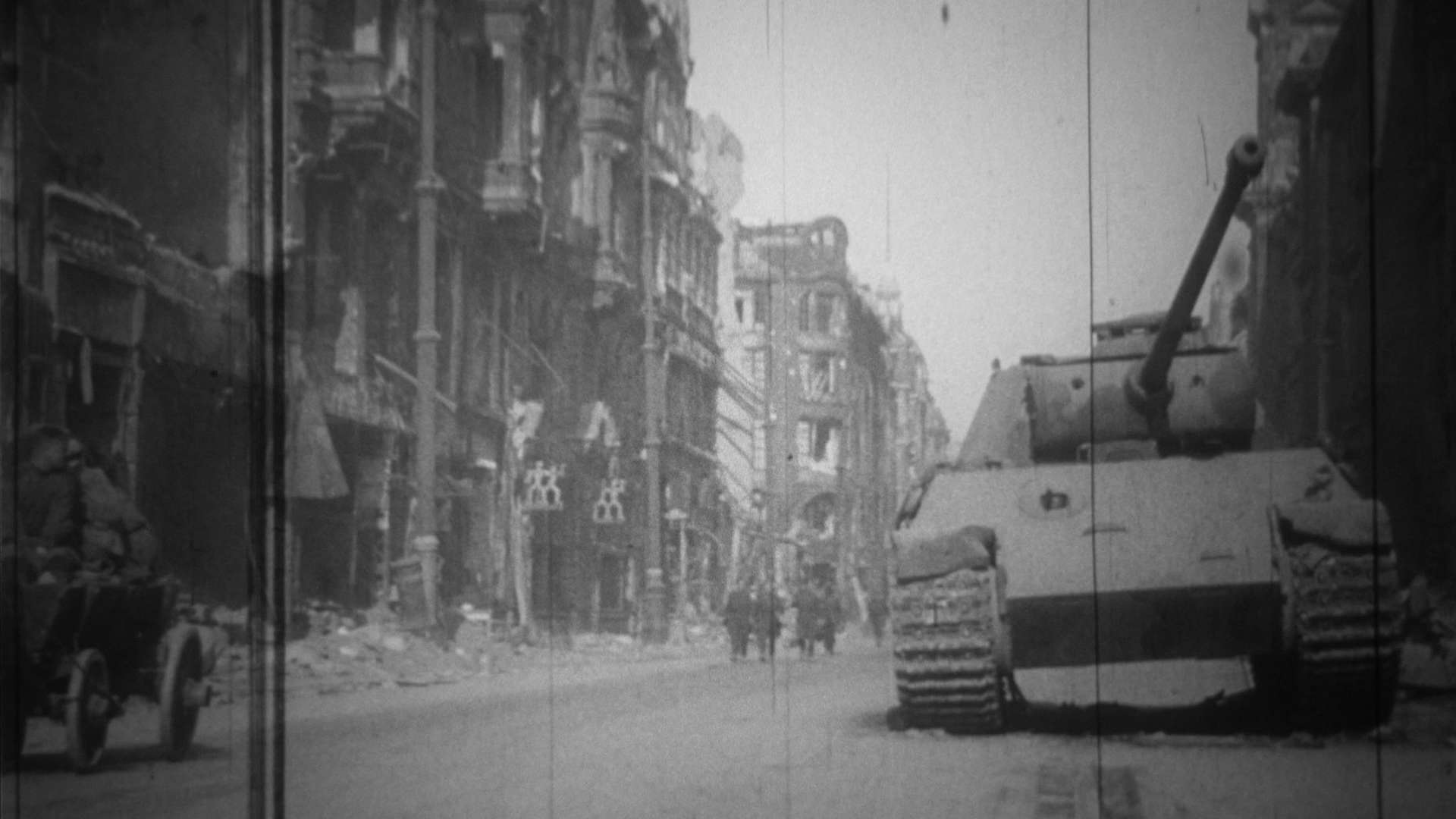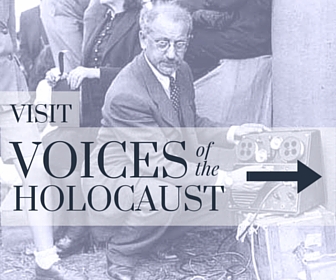
Before anyone used the word “Holocaust” to refer to the Nazi atrocities of World War II, David Boder had already recorded the stories of 130 people who had survived it.
In 1946 the former Illinois Tech psychology professor traveled to refugee camps in France, Italy, Switzerland, and Germany to capture the voices of displaced persons using a wire recorder of the type invented by Marvin Camras (EE ’40, M.S. ’42). Boder spent two months collecting firsthand accounts from Jews and non-Jews of all ages, nationalities, and stations of life.
Prior to his death in 1961, Boder translated and transcribed many of the interviews. He included eight of them in his 1949 book I Did Not Interview the Dead and later self-published 70 more in the series Topical Autobiographies of Displaced People (16-volume set published from 1950 to 1957). He had also contacted relatives of his interview subjects and, where possible, arranged for them to hear the recordings of their loved ones recounting what they had experienced.

“One of the most extraordinary aspects of the recordings is the extent to which Dr. Boder focused on the day-to-day events in people’s lives, which, when woven together, create a rich and detailed picture of the impact of war and Nazi Germany,” says M. Ellen Mitchell, Illinois Tech psychology professor, former dean of the College of Psychology, and former interim dean of Lewis College of Human Sciences. In 1998 Mitchell discovered the recordings and the 16-volume set of interview transcripts in the archives of IIT’s Paul V. Galvin Library. “As a collection, they are a priceless oral history rooted in real events,” she notes.

Mitchell and several colleagues secured funds to preserve the collection for future generations via an online project, Voices of the Holocaust. Library staff volunteered their time to input the transcripts for online use. Other work included digital transcoding and cleanup of the audio recordings, which can be heard on the Voices website, as well as translation of non-English transcripts, and website development.
IIT also partnered with the Illinois Holocaust Museum and Education Center in Skokie to create an exhibit honoring Boder’s work. Items on permanent loan to the museum include Boder’s 1946 audio recordings, his photograph, a signed copy of his 1949 book, and a wire recorder.
Boder was posthumously inducted into the Illinois Tech Hall of Fame last September. His award was accepted by Margaret Seres (M.S. SED ’64, M.S. REHB ’69), whose parents headed the Department of Psychology and were Boder’s friends and colleagues.
“My memories are a child’s memories, and it was only later that I came to appreciate what he achieved,” Seres stated in an email interview. “David Boder's insistence on recording the stories of ordinary people gives these subjects the opportunity to say ‘my life has meaning’ and to say it so emphatically that all these years later it still rings true.”
MORE ONLINE
Illinois Holocaust Museum and Education Center: www.ilholocaustmuseum.org/